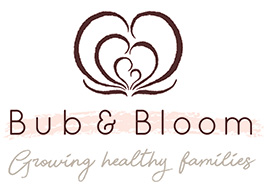Breastfeeding & Lactation Support

Lainey can assist with many breastfeeding support and any issues you may have. It can be either an easy, joyful journey or painful and even traumatic experience.
Sometimes it is just a simple change that can turn the tables and lead to a path of comfort and fulfillment for both mummy and baby.
Choosing whether to breastfeed or formula feed your baby is one of the first decisions expectant parents will make. The World Health Organization (WHO) recommends breastfeeding as best nutrition for babies. Breastfeeding helps to defend against infections, reduce incidence of allergies and protects against a number of chronic conditions.
Although experts believe breastmilk is the best nutritional choice for infants, breastfeeding may not be possible for all women. Lainey has educated and assisted a large number of women with their breastfeeding issues. She uses her midwifery expertise to help mums with correct attachment and help to make breastfeeding a lovely experience.
Lainey offers gestalt breastfeeding support, a technique developed and taught to her by Dr Pamela Douglas. These techniques are founded through rigorous and contemporary medical research using ultrasound of breastfeeding babies to improve the experience of breastfeeding for both mummy and baby.
This support is offered to all Bub & Bloom and Family Tree Acupuncture clients.
Common Breastfeeding Problems:
Sore nipples usually happens because your baby is not well positioned and attached and attached at the breast.
Putting up with it could make pain or discomfort worse, so it's important to get help from your midwife, health visitor or breastfeeding specialist as soon as you can.
See more advice on sore nipples
When you first start breastfeeding, you may worry that your baby is not getting enough milk. It can take a little while before you feel confident that your baby is getting what they need.
Learn the signs that your baby is getting enough milk.
Offering your baby both breasts at each feed and alternating which breast you start with will help to stimulate your milk supply. So will keeping your baby close and holding them skin to skin.
Speak to your midwife, health visitor or a breastfeeding specialist if you're worried your baby is not getting enough milk.
Breast engorgement is when your breasts get too full of milk. They may feel hard, tight and painful.
Engorgement can happen in the early days when you and your baby are still getting used to breastfeeding. It can take a few days for your milk supply to match your baby's needs.
Engorgement can also happen when your baby is older and not feeding so frequently, perhaps when they start having solid foods.
See how to manage breast pain whilst breastfeeding
Breastfeeding is a skill that you and your baby need to learn together. It may take you both a while to get the hang of it.
If you are finding breastfeeding painful or your baby does not seem to be satisfied after feeds, they may not be latching onto the breast properly.
Is baby latching well and getting enough milk.
Occasionally women make too much breast milk and their babies struggle to cope.
It's best to get your midwife, health visitor or breastfeeding specialist to watch a feed to see if they can spot why this is happening. They can also show you different positions to help your baby cope with large amounts of milk.
Thrush infections can sometimes happen when your nipples become cracked or damaged. This means the candida fungus that causes thrush can get into your nipple or breast.
If you suspect you or your baby has a thrush infection, see your health visitor or GP.
See how to spot the signs of thrush whilst breastfeeding
If breast engorgement continues, it can lead to a blocked milk duct. You may feel a small, tender lump in your breast.
Frequent feeding from the affected breast may help. If possible, position your baby with their chin pointing towards the lump so they can feed from that part of the breast.
See how to manage breast pain whilst breastfeeding
Mastitis happens when a blocked milk duct is not relieved. It makes the breast feel hot and painful and can make you feel very unwell with flu-like symptoms.
It's important to carry on breastfeeding. Starting feeds with the tender breast may help.
See how to manage breast pain whilst breastfeeding
If you are no better within 12-24 hours, or if you feel worse, contact your GP or out of hours service including accident & emergency as you may need antibiotics.
If mastitis is not treated, or if it does not respond to treatment, it can lead to a breast abscess, which may need an operation to drain it.
See how to manage breast pain whilst breastfeeding
In some babies, the strip of skin that attaches the tongue to the floor of the mouth (frenulum) is shorter than usual. This is known as tongue tie.
Some babies who have a tongue tie do not seem to be bothered by it. In others, it can stop the tongue moving freely, which can make it harder for them to breastfeed.
The good news is that tongue tie easily treated.
Find out about tongue tie

